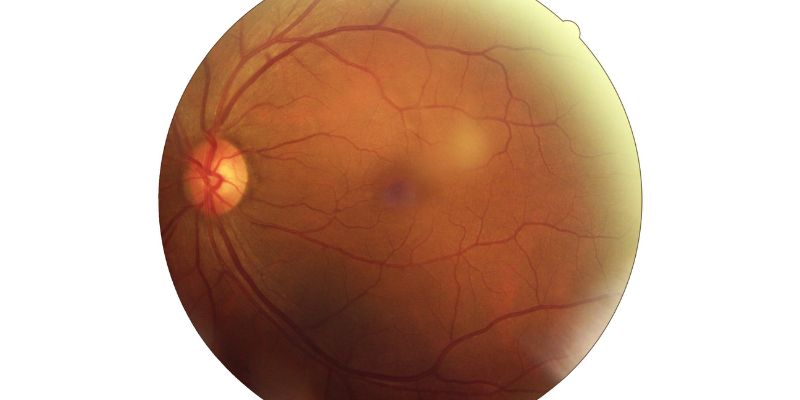How Adults with ADHD Can Sleep Better: 11 Proven Tips
Getting quality sleep can be a challenge for many adults, but for those with Attention Deficit Hyperactivity Disorder (ADHD), it can feel particularly elusive. The symptoms of ADHDlike restlessness, racing thoughts, and difficulty focusingoften extend into the nighttime, making it hard to wind down and drift off.
In fact, research shows that adults with ADHD are more likely to experience sleep disturbances compared to the general population. Understanding this, weve compiled 11 practical tips aimed at helping adults with ADHD achieve better sleep.
11 Tips for Better Sleep for Adults With ADHD
Here are 11 tips for adults with ADHD to improve their sleep quality:
Understand Your Sleep Patterns
To improve your sleep, it's essential to understand your unique sleep habits. Many adults with ADHD struggle with irregular sleep schedules or being night owls. Track your sleep by keeping a diary for a week or two, noting bedtimes, wake-ups, and any interruptions. This helps identify triggers like late caffeine intake or stimulating activities that hinder rest. Understanding these patterns allows you to make adjustments that foster better sleep.
Create a Relaxing Sleep Environment

Your bedroom should be a peaceful retreat designed for rest. Keep it dark, quiet, and cool, aiming for a temperature between 60 and 67 degrees Fahrenheit to promote deeper sleep. Blackout curtains can block out light, and white noise machines or earplugs can drown out distractions. Invest in bedding and pillows that make you feel comfortable. This serene environment signals your body to relax and prepares you for sleep more effectively.
Establish a Consistent Sleep Schedule
Consistency is key when managing ADHD and sleep. Going to bed and waking up at the same time every day, including weekends, helps regulate your body's internal clock. This routine makes it easier to fall asleep and wake up naturally. If you can't sleep, avoid staying in bed frustratedget up and do something calming until you feel drowsy. This prevents negative associations with your bed and promotes better rest.
Limit Screen Time Before Bed
In our digital age, screens have become an integral part of our lives, often even at bedtime. However, the blue light emitted by smartphones, tablets, and computers can interfere with your body's production of melatonin, the hormone responsible for sleep. Aim to limit screen time to at least one hour before bed. Instead, engage in calming activities like reading a book, practicing mindfulness, or listening to soothing music. By disconnecting from screens, you signal to your brain that it's time to unwind and prepare for sleep.
Develop a Pre-Sleep Routine
A calming pre-sleep routine can help transition your mind and body into sleep mode. Consider activities that help you relax and signal bedtime. This could include gentle stretches, meditation, or a warm bath. Adding mindfulness practices, such as deep breathing or progressive muscle relaxation, can also help clear your mind of racing thoughts. A routine creates a sense of predictability and comfort, making it easier to ease into sleep.
Monitor Caffeine Intake
Caffeine can have a significant impact on sleep quality, especially for adults with ADHD. Caffeine, a stimulant, can stay in your system for hours, so its best to avoid it in the afternoon and evening. Switch to herbal teas or decaf beverages to relax. Reducing your intake of these substances can lead to better, more restorative sleep.
Engage in Regular Physical Activity
Regular exercise is a great way to enhance sleep quality and overall health. Physical activity during the day helps reduce stress and anxiety, making it easier to relax at night. Try to get at least 30 minutes of moderate exercise on most days. However, avoid intense workouts close to bedtime, as they might energize you instead of helping you wind down.
Practice Mindfulness and Relaxation Techniques
Mindfulness and relaxation techniques can be particularly helpful for adults with ADHD who often struggle to quiet their minds before bed. Practices such as meditation, deep breathing, or progressive muscle relaxation can reduce anxiety and induce a sense of calmness. Adding these techniques into your nightly routine can make falling asleep easier and improve sleep quality. Many apps and online resources offer guided sessions tailored to help you get started, making mindfulness more accessible and effective.
Consult a Professional

If sleep difficulties persist despite trying different strategies, it may be time to seek advice from a healthcare professional. Sleep disorders are common among adults with ADHD and can significantly impact daily life. A sleep specialist can identify issues like insomnia or sleep apnea and recommend treatments tailored to your needs. These may include cognitive-behavioral therapy for insomnia (CBT-I), medication, or other therapies to help you achieve better, more consistent sleep.
Consider Medication Carefully
For some adults with ADHD, medication may be necessary to manage symptoms that interfere with sleep. However, it's essential to approach this option carefully and consult with a healthcare professional. Some ADHD medications can be stimulating and may disrupt sleep if taken too late in the day. Your doctor can help adjust your medication schedule or explore alternative treatments that are more conducive to restful sleep.
Stay Patient and Persistent
Finally, improving sleep takes time, especially for adults with ADHD. Its essential to remain patient and persistent in your efforts. You may need to try multiple strategies to find what works best for you. Track your progress in a sleep journal and make adjustments as needed. Celebrate small victories along the way, whether its a night of uninterrupted sleep or simply feeling more rested in the morning.
Conclusion
Navigating sleep challenges with ADHD can be tough, but with the right strategies, you can improve your rest. Understanding your sleep patterns, creating a calming environment, and establishing a consistent routine can enhance your sleep quality. Adding mindfulness and relaxation techniques can also help calm racing thoughts.
Be patient with yourself as you find what works best, and don't hesitate to seek support if needed. With persistence, you can enjoy restorative sleep, which can lead to better focus and overall well-being.












